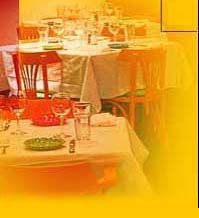


|
|
|
KARAN BILIMORIA, a rugged, hearty, outdoor kind of Parsi, with a Cambridge law degree and chartered accountancy qualifications under his belt, is more interested in the wines and spirits industry of Great Britain than in practising what he studied for. Fourteen years ago, when he was 27, Karan launched UK's now popular Cobra Beer. He was 20,000 pounds in debt but savvy enough to realise that the British, who were a nation of curryholics, lacked a smooth beer that complemented Indian food. �The market was dominated by harsh, gassy Eurofizz beers, all poor partners to spicy food, and I wanted to produce a really good quality lager which would complement rather than fight against Indian food,� says Karan. He entered the most competitive beer market in the world opposite long established, giant brands and at a very difficult time � the first shipment of Cobra Beer was exported from India in 1990, at the start of a recession in the UK. But today, 13 years later, it has a current retail value turnover approaching 50 million pounds and is sold in over 5,000 Indian restaurants throughout the UK. Cobra Beer is also exported from the UK to 30 countries. I could tell you a lot more about Cobra Beer, but this piece on Karan and the Bilimoria family is to do with wines, and not beer. With the same zesty effervescence with which he leaped into beer, Karan dived into wine.
�It tasted damn good with Indian food, that's what my father always said,� reports Karan. �I thought he had a point.� So he began his research. And the first thing he discovered was that the Indian restaurants in UK that sold a housewine by the glass, sold the cheapest wine on their list. �What it should have been was the best value wine,� Karan explains. �Ninety per cent of the housewines in Indian restaurants were not good. They were red or white, but had no vintage, no region, they were unbranded and the cheapest variety of table wine available.�
So Karan got thinking. �How do people eat Indian food,� he asks. �They mix dal, curry, tandoori chicken together. Their meal is a rich, varied and exotic one with complex flavours. If you're going to match each dish with a wine, you will have more wine glasses on your table than food!� He decided to have a red and white that matched the entire meal! Unlike his Cobra Beer, which he says quenches the thirst but does not affect the taste of the food, and which is complementary but not overpowering, Karan knew that the best of wines clash with and destroy the tastes of food. His search took him first to the South of France, to the Languedoc region, which is the largest wine-producing region of the world. And then to South Africa, to the rural western coast where the rich soils are perfect for the cultivation of grapes, and to the Beyerskloof estate, home of Beyers Truter, international winemaker. He talks about wine-making: �It is a long-term project. For the first four years, you don't get anything at all. After eight years, you start getting something decent.� And he appreciates the efforts put in by the three wine-makers of India, the pioneering Chougule and Grover families, and the young entrant, Sula Wines. �But none of the Indian wines accompany the whole range of food, though, Grover's La Reserva is getting there,� says Karan. He started off initially with two wines, a Merlot and a Terret-Sauvignon from the Languedoc region. The first a rich, vibrant, full aromatic wine. The second a dry white with the Terret grape providing a smooth, rich, peachy base while the Sauvignon added herbaceous aromas and a citrus fruit lift. In 1998, the vintage was a phenomenal success and sold out within months of its launch. The Bilimoria portfolio was expanded at the beginning of 2001 with the launch of two more wines from the same region, a Marsanne-Roussanne and a Syrah. The first, an original marriage of two dry white grape varieties, turned out to be a full and complex wine. And the Syrah, a deep, red wine with an aroma of ripe fruit and a hint of wood. Karan named the wines after his father, General Bilimoria, who was very happy with the honour naturally. �The good thing is that he does not charge me any royalty,� Karan jokes. And General Bilimoria wines went into hundreds of Indian restaurants including the two Michelin star ones, Zaika and Tamarind in London. On a roll, now, Karan increased his range by adding South African wines to the portfolio in November last year: a Pinotage, deep red, complex, with blackberry flavour; and, a Colombard Chardonnay, fresh, crisp and deliciously fruity. Both are ideal for everyday drinking and as accompaniments to spicy Indian food. He had come down to India, to Bombay, to introduce the South African wines, that is when I met Karan Bilimoria and his pretty English wife Heather. They have three children, two boys � Kai and Josh, and a girl � Zara. And he is as Indian in home, which is England, as he is in India. �Very proud to be a Parsi, too,� he says, �I always wear the sadra-kusti and visit the Colaba agiary when I come to Bombay.� He sees Bilimoria wines being taken very seriously in India, particularly in Bombay, Delhi, Pune, Goa, Hyderabad, and Kolkata. And they are getting treated in India as French wines, not Indian. General F. N. Bilimoria, meanwhile, lives a retired life in Dehradun. He loves all the wines named after him. He used to be a whisky drinker. But once while playing golf with a famous doctor in Dehradun, he was told that the key to good health is a glass of wine every day. Now the General drinks four glasses. General Bilimoria wines, naturally!
|

Home Page
About the mag
Subscribe
Advertise
Contact Us
 The Parsi Wine-maker From London
The Parsi Wine-maker From London
 He met the Mysore Breweries' brewmaster and got him to brew an exceptional beer to an authentic Indian recipe. Using only the finest natural ingredients, barley malt, maize and rice, Karan produced the beer he wanted. I have not tasted it myself, but he describes it as being �extra smooth and less gassy�.
He met the Mysore Breweries' brewmaster and got him to brew an exceptional beer to an authentic Indian recipe. Using only the finest natural ingredients, barley malt, maize and rice, Karan produced the beer he wanted. I have not tasted it myself, but he describes it as being �extra smooth and less gassy�. Recognising that it was equally difficult to match French and Italian wines with Indian food, and inspired by the success of Cobra Beer, he decided to make his own wine for the purpose.
�It was not a diversification process as much as an opportunity,� he says. Karan remembered his father, Lieutenant General (retd.) F. N. Bilimoria of the Gurkha Regiment in the Indian Army, telling him about some leftover French wines from pre-Independence India that the regiment had in its cellars.
Recognising that it was equally difficult to match French and Italian wines with Indian food, and inspired by the success of Cobra Beer, he decided to make his own wine for the purpose.
�It was not a diversification process as much as an opportunity,� he says. Karan remembered his father, Lieutenant General (retd.) F. N. Bilimoria of the Gurkha Regiment in the Indian Army, telling him about some leftover French wines from pre-Independence India that the regiment had in its cellars. Whereas the other top restaurants of UK had a variety of housewines that were regional, branded, of recommendable vintage, and of very good quality. �I thought, why can't the Indian restaurants also do that,� he says. �But I knew it was a big challenge to match wine with Indian food and that the critics would be against that.�
Whereas the other top restaurants of UK had a variety of housewines that were regional, branded, of recommendable vintage, and of very good quality. �I thought, why can't the Indian restaurants also do that,� he says. �But I knew it was a big challenge to match wine with Indian food and that the critics would be against that.�